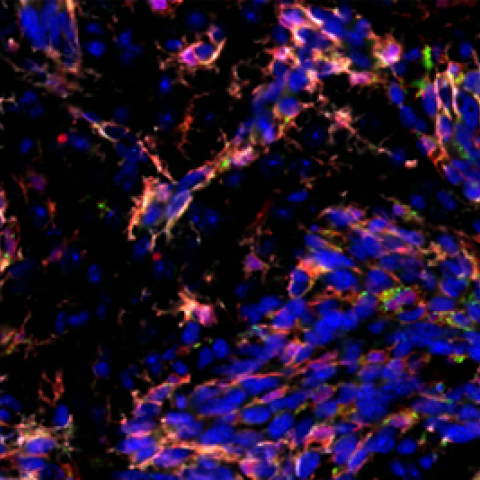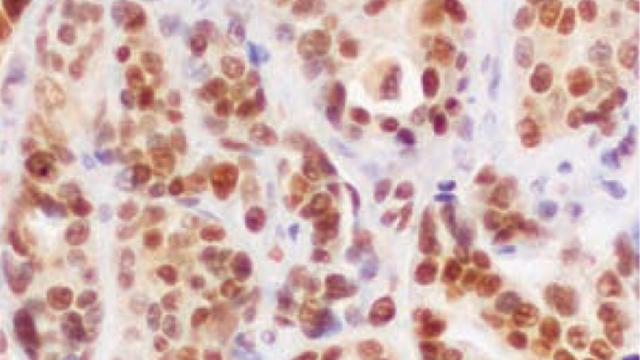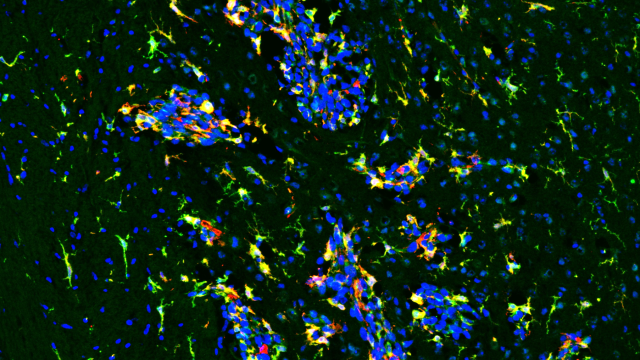
Metastasis in a mouse brain. Tumor cells, shown in blue, are surrounded by microglia and macrophage immune cells, shown in pink.
Photo credit: Wu et al figure 4E, top right panel; Steeg.
In new animal research, CCR scientists led by Patricia S. Steeg, Ph.D., Deputy Chief of the Women’s Malignancies Branch, have found that human breast cancer cells are more likely to metastasize to the brain when they are injected into young mice than when they are injected into older animals — but fewer metastases develop when young animals are given a treatment that makes their immune systems more like those of older mice. This finding, reported June 3 in Clinical Cancer Research, may help explain why breast cancer is often aggressive when it is diagnosed in young women.
Only about seven percent of breast cancer cases are diagnosed in women 40 years of age or younger. Outcomes for these patients are often poor, despite aggressive treatment. Since researchers have not found any genetic features that distinguish young women’s breast cancers from breast cancers detected later in life, Steeg and her colleagues suspected that something about the environment in which those cells grow and spread must contribute to the group’s poor prognosis.
To test this idea, researchers injected breast cancer cells into mice of different ages and monitored the animals for metastasis to the liver, lungs and brain. “Age made not a whit of difference to the lung and liver,” Steeg says. “But in four brain metastasis models, there it was: The young mice developed two- to almost five-fold greater metastases than the older mice.”
Young mice developed significantly fewer brain metastases, however, when they were given a drug that changes the immune environment in the brain. The drug, an inhibitor of an immune protein called colony stimulating factor-1 receptor (CSF-1R), reduces the number of cells known as infiltrating macrophages and microglia. These cell types are more prevalent in the brains of younger animals and also behave differently there than they do in older animals. After young mice were treated with the CSF-1R inhibitor, the numbers and behavior of these cells resembled those of older mice.
Based on these findings, Steeg is hopeful that inhibiting CSF-1R might prevent breast cancer from metastasizing to the brain in young women diagnosed with the disease. She and her colleagues are now investigating other CSF-1R inhibitors as potential candidates for clinical studies.


